|
by Abagail
The Lion, the Witch, and the Wardrobe was a magical experience. Many hours of hard work and dedication went into this play and each actor, large or small, contributed to making it one of my most memorable experiences of high school. This was my first major performance and I had the honor of being cast as Lucy. The role taught me how to find my voice as an actress and it had many challenges. How could I possibly portray such a memorable and beloved character? I learned that maybe it wouldn’t be perfect, but I would try my best. Lucy is polite, yet playful. She is innocent, yet full of strength. C.S Lewis created such a rounded character in Lucy. I loved being in a play full of so much depth and power. The Lion, the Witch, and the Wardrobe represents the struggle of good versus evil and tell the remarkable story of Jesus Christ. It was an epic play full of symbols and morals, exceeding every expectation. 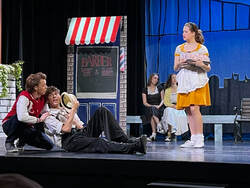 Comedy of Errors sounds like a funny show, right? Well, let me tell you, it was not only funny, it was hilarious both on stage and off. The show is your typical Shakespeare with quite a few mix-ups where not one but two sets of twins get confused with each other and a whole lot of snarky remarks thrown in. I played the character of Luciana, whom we chose to portray as an airheaded, loosey-goosey, kind of stupid woman. As a way of portraying the idea of women from the 40’s/50’s who were not quite all there, we chose to move my voice up quite a few octaves. This was quite the struggle. I had to spend hours working on perfecting the voice I was going to use. Once show week rolled around, I was doing everything to protect my vocal cords. I don't think that I’ve ever consumed so much tea in one week. The show was a massive success, and I even had a few people come up to me after the show and ask if that was my real voice. By Grey Etue My time as Pip in Great Expectations pushed me a lot and caused me to learn about myself. I faced many challenges along the way such as the daunting task of memorizing around 350 lines, realizing I was never going to come off stage, and “mastering” a quick change on stage. Before I was Pip I had only ever been in a comedic role and Pip being my second role I was very worried about not being able to live up to the challenge of the lead. Since Pip was a very dramatic role I made sure to work on showing emotion in different ways on stage. One of the hardest things to do for me when it comes to acting is making myself feel the character. I usually just interact with my emotions as opposed to being the character and feeling them in the moment. So having to interact with Pip and feel those emotions was very scary to me. While being encouraged by my fellow cast members I pushed forward and gained more confidence in my ability, and as time went on and started to feel more in tune with Pip. 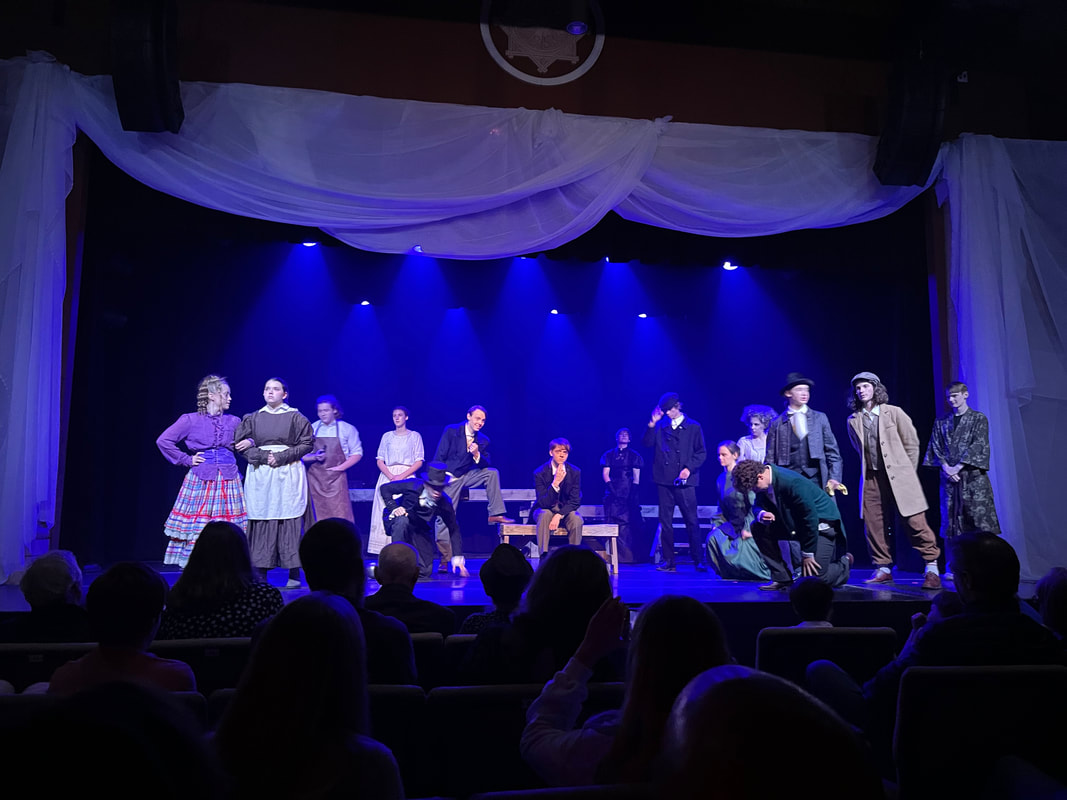 My favorite scene of the play was the final one, All of the characters in the play gather around me and say quotable lines from the play that forged my character. It gave me chills the first time reading it in the script and I worked very hard to make sure I could find the perfect way to deliver the final line and it was one I struggled with the entire process even during the other shows. The final show I spent the entire time thinking about this line and how I was going to end it all the way Pip would truly want it ended. My go to in the past had always been to try to say it in a way that conveys sadness over all the things that he had done. But in that moment as I got up to deliver the line that final time I felt like I got it right. I lifted my head up and with real tears and my eyes delivered the line closing it all, “Great Expectations.”
On a balmy evening in May, Drama People put on their first ever outdoor show. “Meet Me in St. Louis,” is a tale navigating the complexities of family, friendships and growing up. While the show may have appeared well orchestrated, the days leading up to the performance were filled with blood, sweat and tears in abundance. Our producer, Mrs. Wall, did a wonderful job with our outdoor stage but faced many difficulties. (Such as, the set trying to fly away in a storm!) This show was so special because it was our director, Mrs. Martinez’s last show for a season. The cast worked so hard and had a lot of fun along the way while navigating Covid, weather and many other trials. All in all, many memories were made “Right here, in St. Louis!”
Our Town is a melancholy play about the passing of time and the frailty of life. It's ironic then that the audience was laughing riotously half the time. The performance by the main cast was stunning. The crew, being the foundation of the production, supported and encouraged them the whole way. Drama People created an atmosphere unlike any other that was both raw with the joys of life and deep with its sorrows. In greater irony, not a month after the show wrapped, our world was thrown into a pandemic. We had spent the weeks and months leading up to the peformance digesting these ideas about how beautiful life is and how precious each moment is when those realities were made even more vibrant while facing the uncertainty and turmoil in quarantine.
By Alex
Developing a character for an actor is essential. There are many different methods of doing so. We asked the actor playing Laurie about this process and he said, “I always start by learning as much as I can from the book/script about my character, then I ask questions and create scenarios through different improv exercises.” Without doing this research, fully understanding the character you are in the the process of molding, you will not be able to genuinely take to the audience into whatever world you are are trying to create. That is why it is so important to Drama People that we use specific methods in developing a role. By Katie
There are many roles that are put into use in the making of the theater production. Tasks and responsibilities can easily get out of hand if there is no form of accountability among the cast and crew. So how can leadership be used properly and a show? Firstly, a well functioning team requires cooperation from all members-leaders and followers alike. An effective leader has the attention of those they are serving...yes, serving. A leader’s job is a service to their team. Their purpose is to use their authority and abilities to benefit the cast and crew by taking charge. It is no easy job. An important tool for a leader to use, especially in a cue-heavy show, is the necessary option of distributing jobs. Simply put, there are too many tasks for a leader to do on their own. That’s why it is important that some of those responsibilities be assigned to someone who can be trusted to complete it for them.This is the most effective way to accomplish things. This is also a good way to solve unexpected problems that a show presents. There are inevitably difficulties that arise when the show is being put together. Consequently, leaders must be constantly at attention. It’s important that they be aware of what is happening on and off the stage. In order to serve the actors and crew members best, a leader should strive to be well acquainted with the show. This means reading the script well, remembering the characters, and knowing the set, props, and cues. When one does have things are meant to run, they can quickly recognize when things go awry. Without a leader to decide on a course of action, a theater could easily crumble. Members of a show look to someone who can respect fully correct in command. It is easiest to lean on responsibility is viewed as a humble service to others. It is healthiest for both the leader and the team to assign duties and spread the workload. The most responsible way to live is to know the show and to always pay attention. Leader ship, though not easy, is certainly necessary, and it can definitely be a beautiful, worthwhile experience. This semester during our class time, we have been learning all about IMPROV! This has been super fun and super terrifying at the same time! The main thing we are learning through improv is to always accept what is handed to us (YES, and…). Some other things we are working on through improv is to work as a team, help our partner/partners shine on stage, and think on our feet. Improv will help us grow as actors in new ways. We often use improv during our main stage rehearsals to help us learn how to get off the page and practice thinking and reacting as our character. This helps us develop authentic chemistry and connection between the characters. But that doesn’t mean that it’s EASY! It’s NOT! Improving in improv (did you see what I did there) takes a lot of commitment and practice!
The audition process for theater can be a scary thing, especially when you're going solo, performing a monologue for the directors. However, with the right amount of preparation and correct balance between character development, discovery, imagination, and performance tactics it can become a much less stressful predicament. For me though, it doesn't get easier, it just becomes more familiar.
Choosing the perfect fit Choosing a monologue can make or break your audition. It's very important you pick the right one for you. A monologue that shows what you can do, that's less than two minutes (1-2 min to be exact), is a good example of a great fit. One suggestion would be choosing a monologue where the character you portray is within 2-3 years of your actual age, if not the same age as you. It's difficult to show casting directors, judges, etc. an amount of who YOU are, if you're doing a monologue where the character is experiencing things you've never experienced, orr saying things you'd never say. In other words, pick a character you somewhat relate to. Preparation There are many techniques you can use while preparing your monologue for auditions. Some may do research on the play, movie, novel, etc. that the monologue is from. Others might go to the extent of reading the book watching the movie, or play, etc. If you are doing a monologue from a novel that is also a movie or play, I feel as though it's better to read the novel first before watching the movie or play, if you have that option. With such a short time of you being this character, keep in mind this is not the character you'll be studying for a whole semester, reading the book is a great way to get to know the character you'll portray. It is great for character development because it leaves it up to your imagination. Some prefer not to watch videos of others doing the same monologue because it can create a fixed picture in the person's head of what they should do/say rather than said person giving their own unique take on the monologue. In my case, if I am researching monologues to perform and I find one that I connect with but, I've never heard of the play and have no idea what it's about, I'll sometimes watch the monologue to get the context, along with doing some research. Callbacks Oh, the grueling callbacks portion of the process! Callbacks are hard to really be prepared for. You can say what character you'd like to be in the play(s) and you can do all in your ability to perform as best as you can but, the rest is up to the directors to place you where they feel your are best. I believe being flexible is important in preparing for callbacks. Keep yourself open-minded because you don't know what to expect. Be open to anything and everything and challenge yourself with new possibilities. You'd be surprised the joy you'll get through trying new things and reading for a character you are not necessarily wanting to be at first glance. Happy with your role If there's one thing I've learned throughout my 6 years in theatre, it's that being disappointed or sad about the role you get is a waste of time. You will not always get the role you desire and you can be okay with that. It's all a learning experience. I've gotten roles that were not my preference and those roles turned out to be the best play experiences I've had. It's all about what you make of it. If you choose to be sad about the role in which you have been cast, there's no fun in that. However, if you do get that one role you wanted, then great job! Be open-minded, happy, and just have fun! In the end that's what matters. My name is Alex. I have been performing with Drama People for the past four years. I have played many roles both lead and supporting. I have had so many amazing experiences being up on the stage. However, last semester I had the privilege to work backstage. It was something I will never forget! Drama People finds pride in the fact of our performances are student run. Although it was stressful to think that if I forgot to move a log two inches to the right during a scene change the main actor might trip and fall on his face during a dramatic monologue, I still loved being backstage! I enjoyed the process of putting a show together and thinking on the spot to work out the many kinks you might run into.
(Did I mention this was student run.) Drama peoples has helped me to understand the importance and magnificent ability to take an audience into a whole other world and make them feel something they didn't before they walk into the theater. Along with with learning how to lead backstage and work with my fellow peers to generate a well-done show. |
AuthorWe are the drama class of the Shanan Co-op in Franklin, TN. Archives
December 2023
Categories |
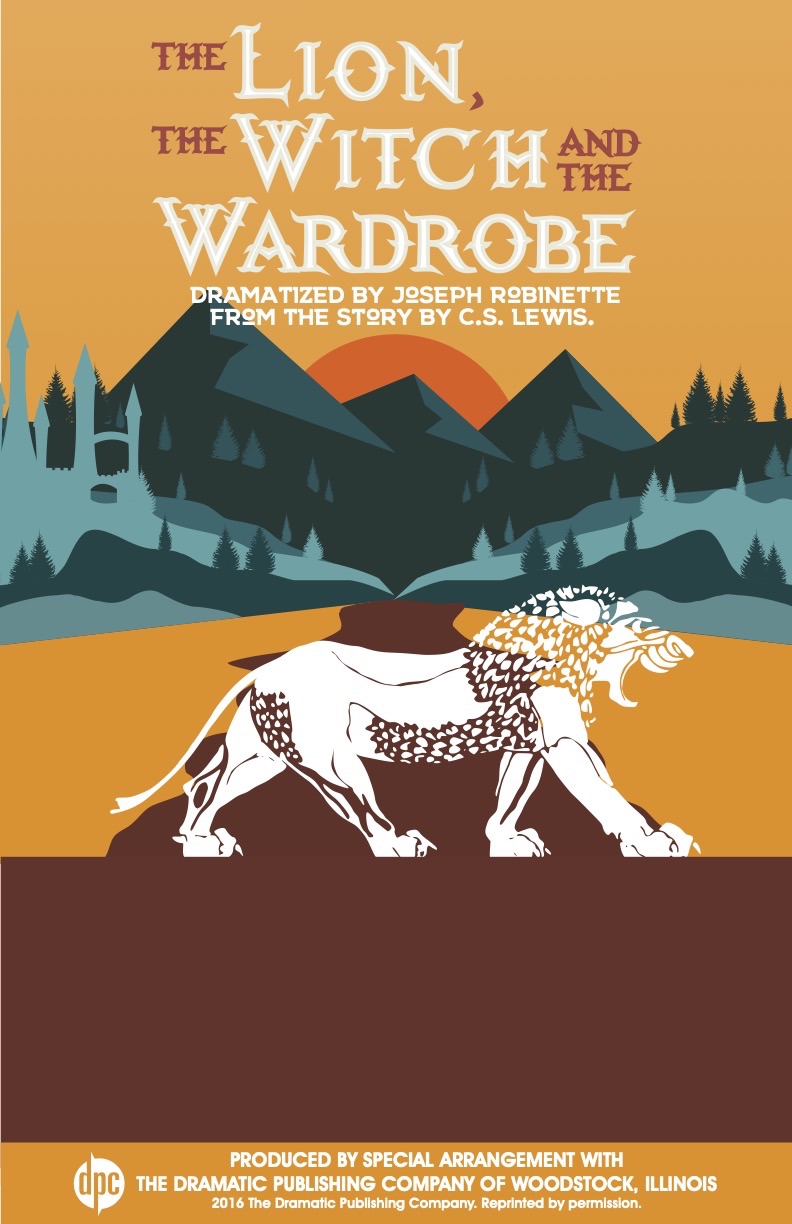
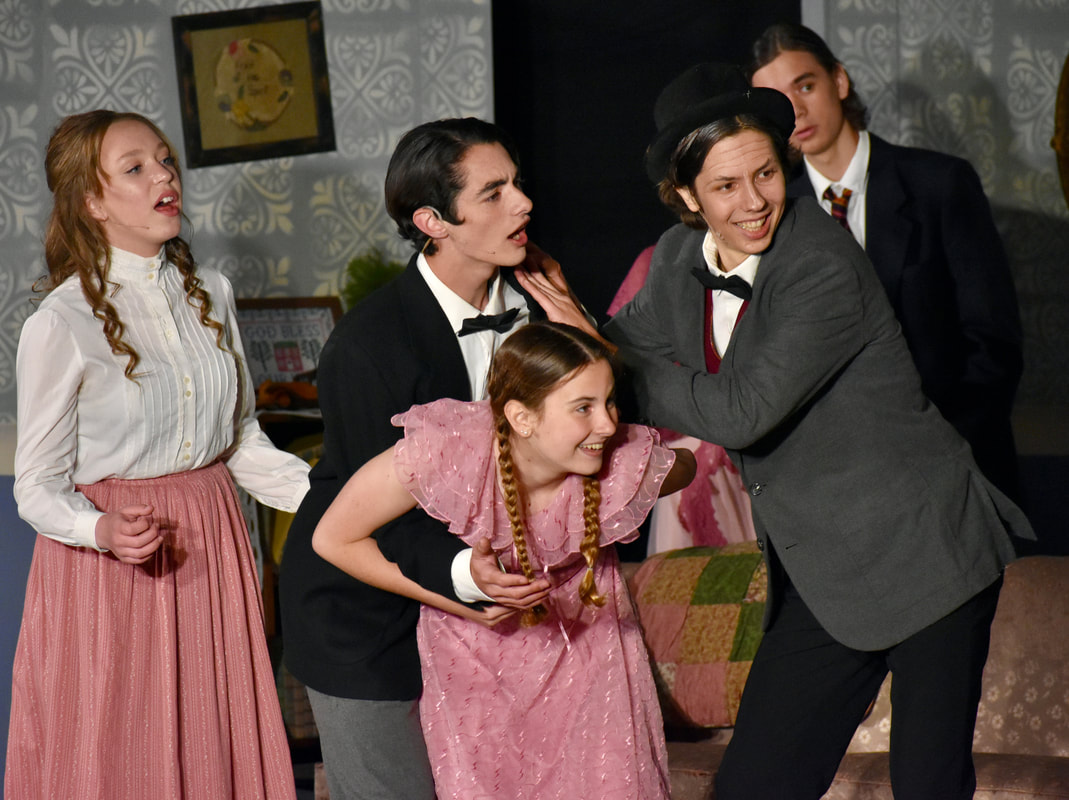

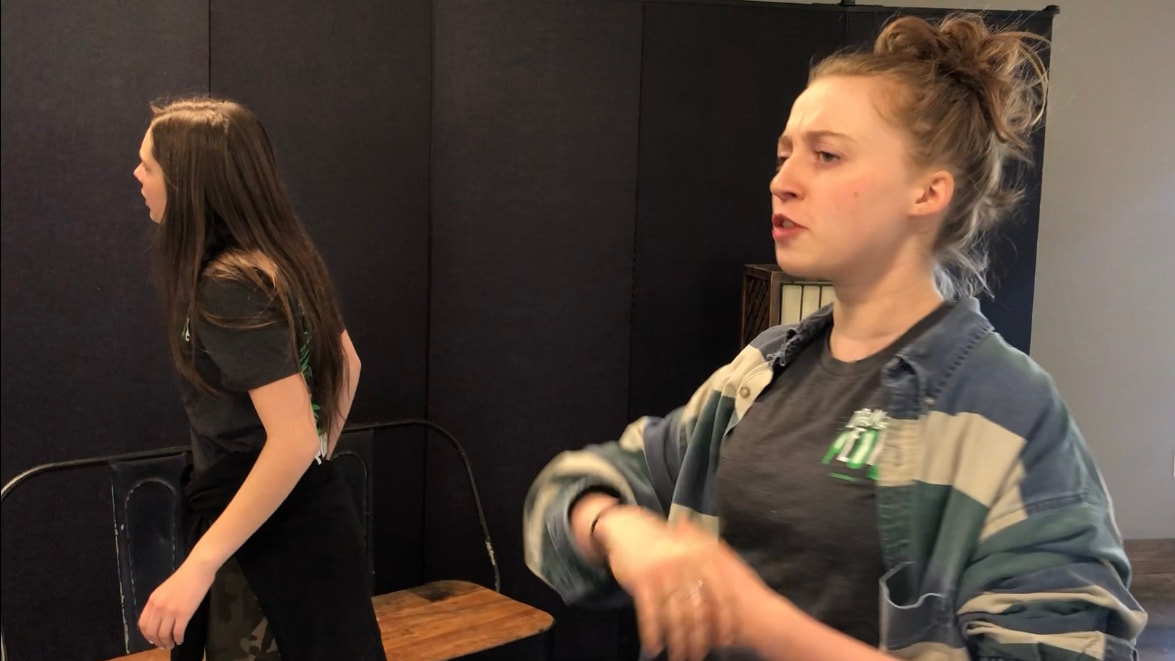
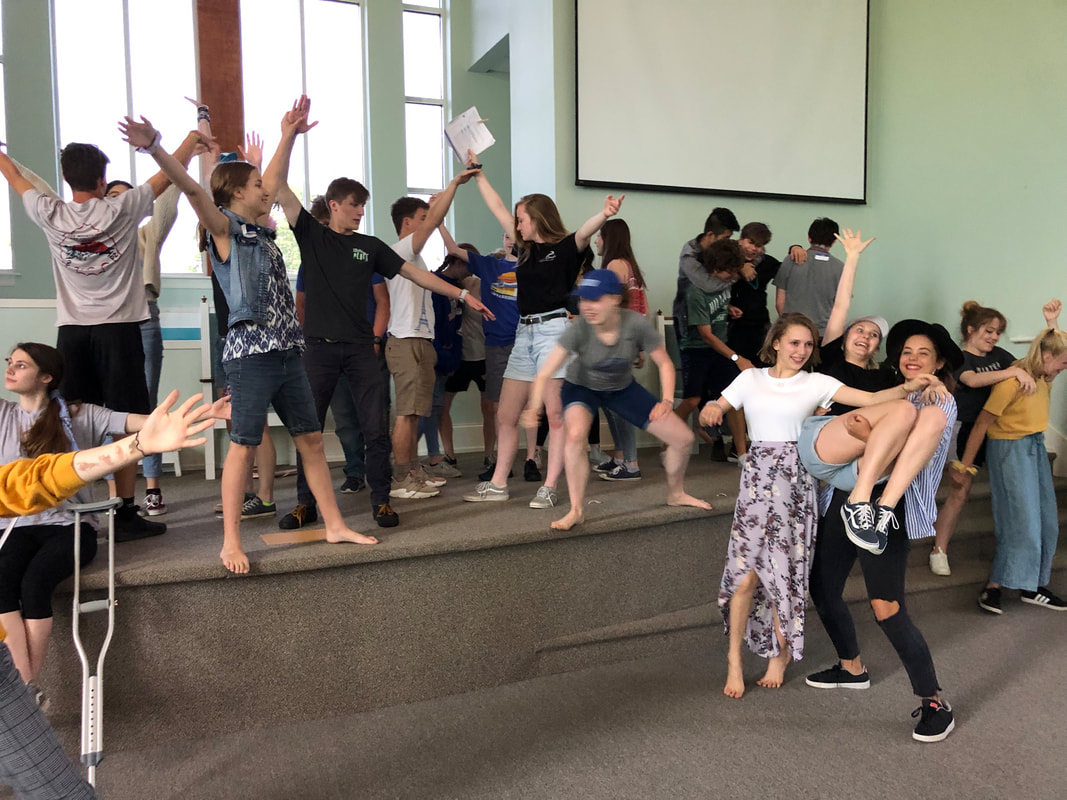
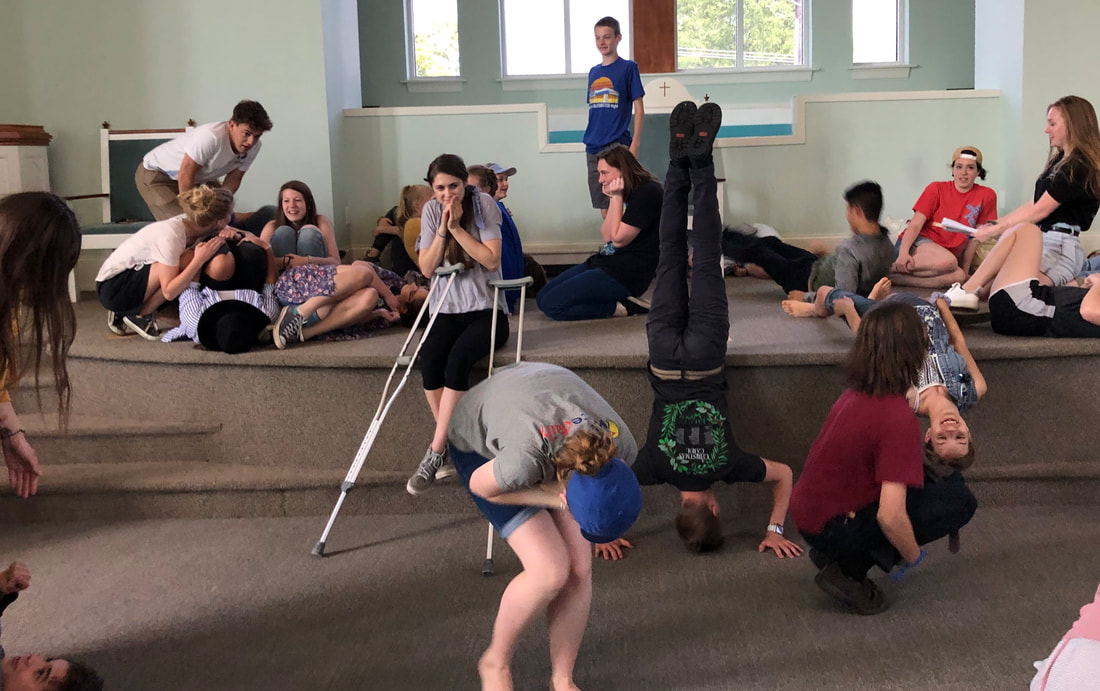
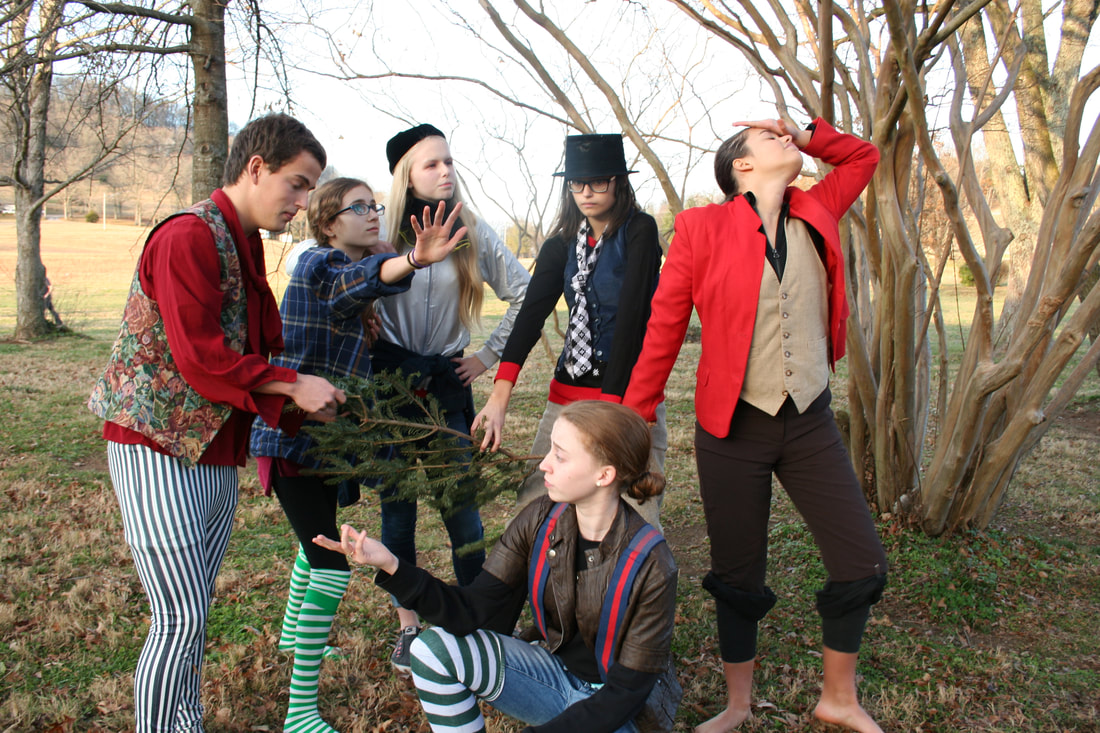
 RSS Feed
RSS Feed